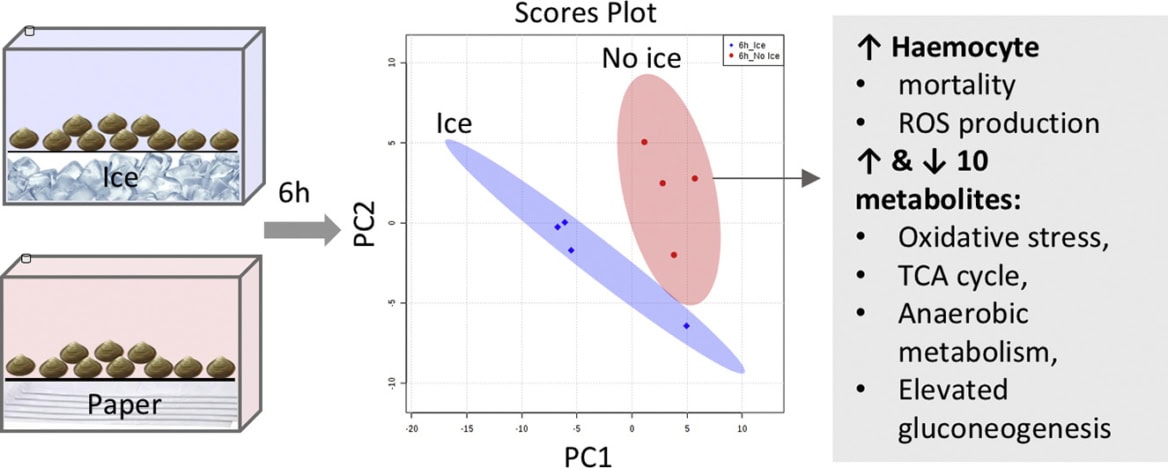A metabolomics approach to assess the effect of storage conditions on metabolic processes of New Zealand surf clam (Crassula aequilatera)
Alfaro AC, Nguyen TV, Mellow D (2019) A metabolomics approach to assess the effect of storage conditions on metabolic processes of New Zealand surf clam (Crassula aequilatera). Aquaculture Volume 498 315:321 https://doi.org/10.1016/j.aquaculture.2018.08.065
Abstract
Temperature fluctuations during the live storage and transport of bivalves are known to be one of the most important stressors for these markets. However, the biological mechanisms that induce these stresses and the immunological responses to stressors are not currently understood. In this study, a gas chromatography–mass spectrometry (GC–MS based) metabolomics approach was used along with flow cytometry to characterize the responses of clams during aerial exposure in two different storage conditions (ice and no ice) and storage periods (1 h and 6 h). The results showed a significant increase in haemocyte mortality and ROS production in clams exposed to room temperature (no ice) and after 6 h compared to low temperature (with ice) and 1 h, respectively. The metabolite profiles of clam haemolymph in all groups revealed changes of many metabolites between the different temperatures and sampling times. Among them, lactic acid, succinic acid, malic acid, fumaric acid and glutamic acid were identified as significantly affected by both storage condition and period. These results indicate that clam storage stresses produced biological disturbances related to energy metabolism, which was switched from aerobic to anaerobic metabolism. These findings provide insights regarding the specific metabolic consequences of bivalve live storage and transport, which may lead to improved product handling along the supply chain. In addition, this study demonstrates the effective use of metabolomics and flow cytometric approaches on bivalve haemolymph as a non-destructive shelf life assessment method.
Keywords: Clams; Oxidative stress; GC–MS-based metabolomics; Flow Cytometry; Bivalve live storage; Energy metabolism
